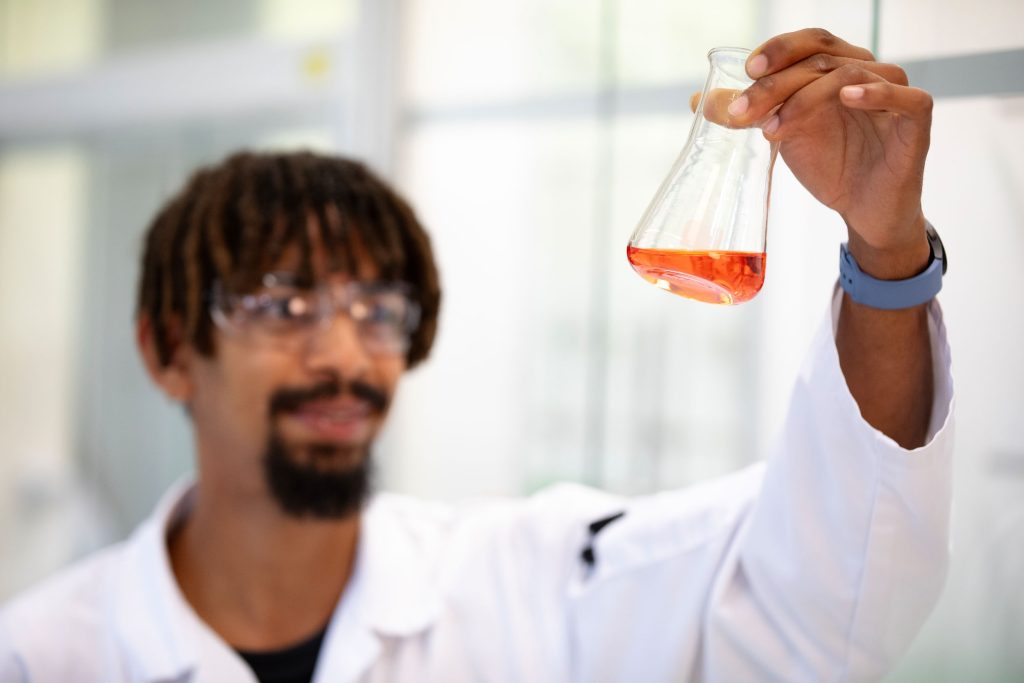Project description
Cashew Nut Shell (CNS) is a waste generated in the production of edible cashew nut. For the 2017 the predicted cashew nuts crop yield is 3 million tons; resulting to 2 million tons of CNS waste. CNS contains circa 30-35% brown viscous liquid, called Cashew Nut Shell Liquid (CNSL), this is a natural resin containing valuable components, for example, cardanol, cardol and anacardic acid. Especially, cardonal and its derivatives have several industrial uses as biobased additives, polymeric building blocks, and biodiesel. At the Centre of Expertise Material and Energy Transition, we are looking into the possibilities of Preparation of novel, recyclable cardanol based epoxy thermosets.
Project activities
- Screening of the crosslinking reactions using different curing agents by means of DSC analysis.
- Curing temperature and the polymerization kinetics will be determined.
- Based on the screening results, the epoxidized cardanol and the hardener will be reacted on a bigger scale (10-100 g).
- Properties of the thermosets will be characterized using TGA and DSC.
- Test the recyclability: the cross-linked samples will be fragmentized, placed in a mold and hot-pressed.
- The mechanical properties of the virgin and recycled epoxy networks will be compared (tensile tests, flexural tests, impact tests).
Desirable skills/qualities of the student
The student should be able to carry out independent laboratory research. The preferred background is polymer chemistry.
Related Information
- Lomonaco, Diego, Giuseppe Mele, and Selma E. Mazzetto. “Cashew nutshell liquid (CNSL): from an agroindustrial waste to a sustainable alternative to petrochemical resources.” Cashew Nut Shell Liquid. Springer International Publishing, 2017. 19-38.
- Podgórski, M., et al., Toward Stimuli‐Responsive Dynamic Thermosets through Continuous Development and Improvements in Covalent Adaptable Networks (CANs). Advanced Materials, 2020. 32(20): p. 1906876.
- Taplan, C., M. Guerre, and F.E. Du Prez, Covalent Adaptable Networks Using β-Amino Esters as Thermally Reversible Building Blocks. Journal of the American Chemical Society, 2021.
Practical information
Period: September 2025. The length of the assignment is 5 months.
Compensation: The student who will execute the assignment gets a fee of €350,- per month.
Working language: English/Dutch.




